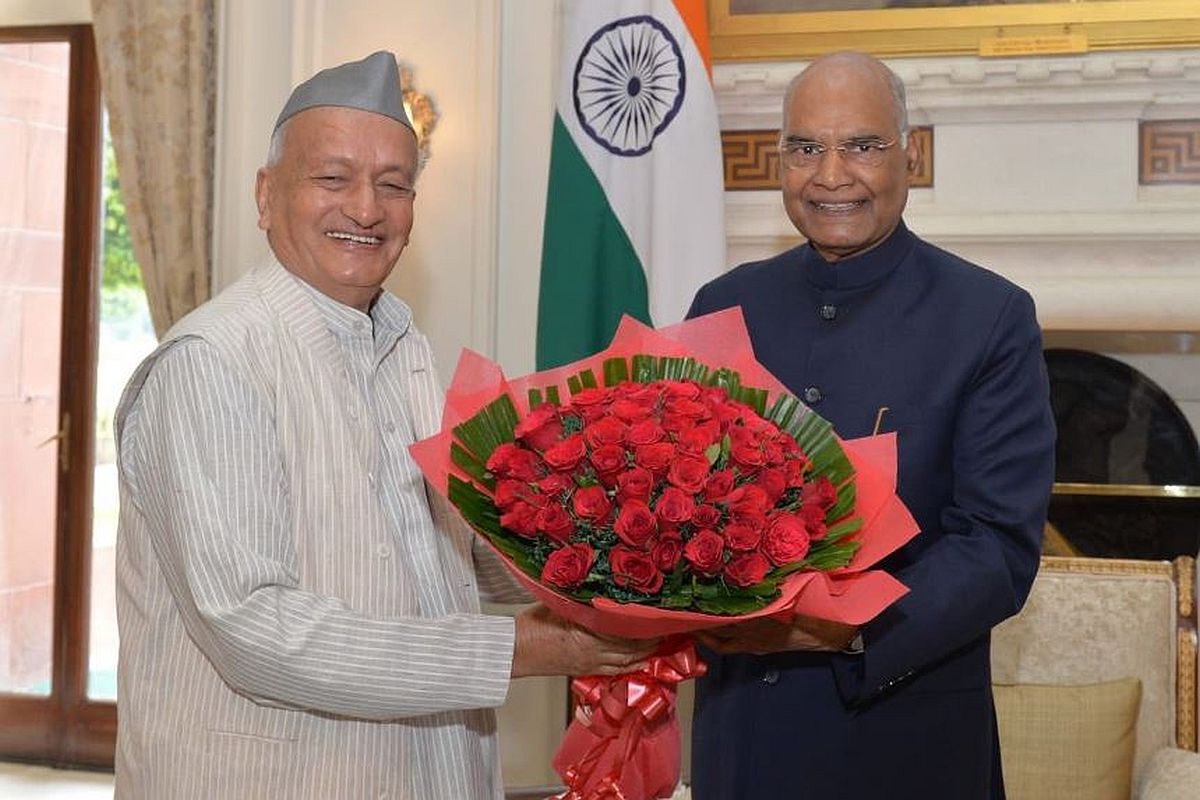As the stalemate over government formation in Maharashtra refuses to end, Governor Bhagat Singh Koshyari has reportedly recommended President’s Rule in the state.
The development comes as none of the three parties, whom the Governor had invited to stake claim, showed an intent to form the government within the stipulated time.
Advertisement
The Maharashtra Governor in a statement clarified that he has recommended imposing President’s Rule in Maharashtra.
A press release by Raj Bhavan stated that “The Governor having been satisfied that as the government of the State of Maharashtra cannot be carried on in accordance with the Constitution, has today submitted a report as contemplated by the provisions of Article 356”.
After the BJP refused to stake claim of the government stating that it does not have required numbers, state Governor Bhagat Singh Koshyari on Sunday night invited the Shiv Sena, which is the second-largest party, to form the government in the state.
However, the Shiv Sena request for a three-day extension for submitting ‘requisite’ letters of support from other political parties, which the Governor rejected.
Following this, the Maharashtra Governor late on Monday invited the Nationalist Congress Party (NCP) — ranked third largest in last month’s polls — to form the next government in the state.
Koshyari had given time to the NCP till 8.30 pm today to prove that it has the numbers to form the government.
Meanwhile, reports have emerged that the Shiv Sena can move the Supreme Court if the Maharashtra Governor imposes President’s Rule in the state. Uddhav Thackeray had reportedly spoken to Kapil Sibal and Ahmed Patel over the issue.
Reacting to reports of Governor recommending President’s rule in Maharashtra, Shiv Sena leader Priyanka Chaturvedi said, “How can the honourable governor recommend President rule till the time given to NCP doesn’t lapse?”
Congress leader Sanjay Jha tweeted: “Hoshiyari much! The Governor’s decision will be challenged in the courts.”
Former union minister Yashwant Sinha criticising the Governor said, “Governor Maharashtra has truly acted as the ‘agent’ of the centre in recommending President’s rule in the state. The three parties should now come out vehemently, reconcile their differences and form a government.”
Meanwhile, a meeting of the NCP core-committee was held. The party is set to empower Sharad Pawar to form an alternative government.
Addressing a press conference, NCP leader Nawab Malik said, “Today NCP meeting was held. All 54 MLAs were present. It has been decided that looking at the uncertainty in the state, we will empower Sharad Pawar ji to take a decision on alternative govt. A committee will be formed for the same which will be led by Sharad Pawar.”
“Governor called us to stake claim yesterday and gave us time till 8:30 pm today. Senior Congress leaders Ahmed Patel, Mallikarjun Kharge and KC Venugopal are coming to Mumbai and will meet Pawar sa’ab at 5 pm. A decision will be taken after their discussion,” he further said.
The NCP added that it is not possible to form an alternative government without the coming together of the three parties (Congress, NCP, Shiv Sena).
“The party (NCP) believes that it is not possible to form an alternative govt without the coming together of the three parties (Congress, NCP, Shiv Sena). If the three don’t come together, there cannot be a stable govt in Maharashtra.”
A string of political engagements has been taking place in Maharashtra as well as in Delhi with leaders from the three parties holding discussions on the formation of the alliance government.
As the impasse in government formation entered the 18th day and the prospect of President’s Rule looming large in Maharashtra, the Congress and NCP are cautious of extending their support to the Shiv Sena, while the BJP ally is awaiting a favourable outcome.
The tussle between BJP and its ally Sena intensified after the former refused two major demands – holding of the chief minister’s post on a rotational basis and implementation of a “50:50 power-sharing” formula, which entails equal allocation of ministerial portfolios.











